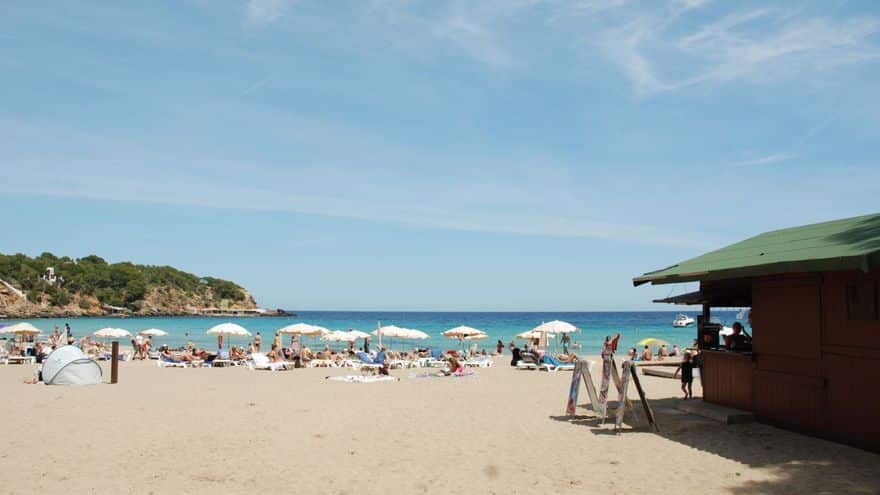An investigation by the University of the Balearic Islands and the University of Girona concludes that the Blue Flags “have not served in any case to improve, restore or reverse the degradation caused by human traffic in coastal areas”
Every year, with the awarding of the Blue Flags by the private entity that promotes them, just as many expectations as controversies are generated. On the one hand, these awards are coveted by many Spanish tourist destinations to be able to display them as a guarantee of quality of beaches, coves and other bathing areas.
But, at the same time, more and more voices arise questioning both their real usefulness and the criteria for their award. Are blue flags really good for something? Do they obey objective parameters?
Last summer a scientific research study entitled ‘Spatio-temporal evolution of blue flag beaches in the Balearic Islands (1987-2018), consequences in their improvement and morphological recovery’, conducted by geographers and geologists of the University of the Balearic Islands (UIB) and the University of Girona, was made public. The conclusion was that “blue flags have not served in any case to improve, restore or reverse the degradation caused by the frequentation of coastal areas”. The work of Francesc Xavier Roig, Josep Pintó, José Àngel Martín Prieto and Antonio Rodríguez Perea analyzed 20 beaches of the islands awarded with the Blue Flag and found that this award, by itself “has not contributed to the geomorphological improvement of the beach-dune systems”.
Rethinking the Blue Flag
“In the beaches analyzed there are no improvements linked to the Blue Flag. Therefore, it is necessary to rethink the usefulness of this label or to implement new environmental accreditation criteria that are adapted to the complexities and particularities of the beaches, without thinking of them as a simple solarium,” add the scientists who authored the study.
Where do Blue Flags come from? It is an award given for the first time in France in 1985 by a private foundation and, given the acceptance it achieved, the idea spread quickly throughout Europe and then to other countries around the world. But even in the early years, voices were raised questioning the criteria used. The flags are currently awarded in Spain by the Asociación de Educación Ambiental y del Consumidor (Adeac) and the Fundación de Educación Ambiental. The main objection is that “a beach can only have a blue flag if it is full of services and infrastructure, i.e., urbanized. It will be difficult for a natural and totally virgin beach to have this distinction, despite the fact that what the entity that awards them advocates is the defense of the environment. It is a total contradiction,” said the mayor of a tourist town a few years ago that had resigned to aspire to this award.
For the full article, please visit Diario de Ibiza website here.

